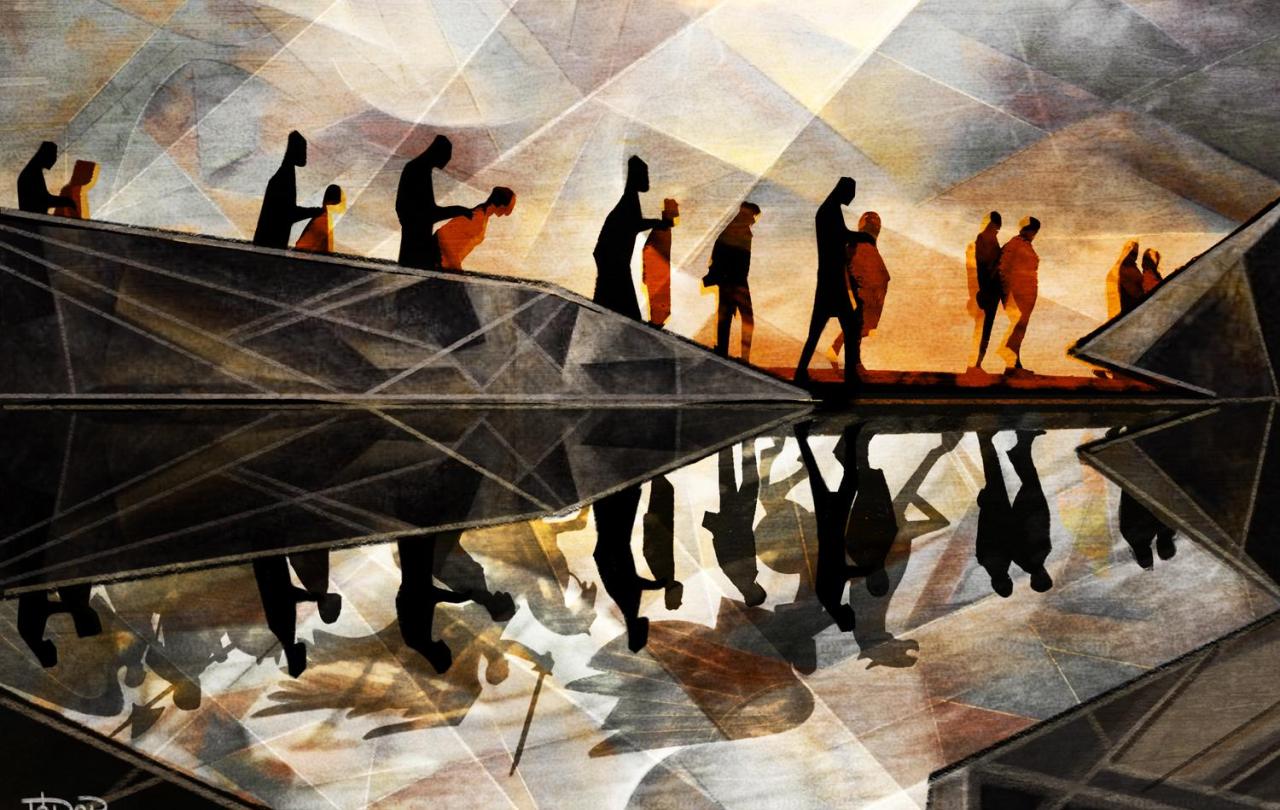The assisted dying fight has garnered unusual levels of publicity for the Battersea MP, who entered parliament seven years ago when barely expecting to do so. De Cordova, now 49, was serving as a Lambeth borough councillor when the 2017 snap general election was called and decided to seek the Labour nomination for Battersea, then held by the Conservatives.
The seat was one of several Conservative seats in pro-Remain areas that fell to Labour’s surprisingly strong showing in the election in the wake of the 2016 Brexit referendum.
“No one really thought I could win here,” de Cordova says. “Obviously, Brexit I would say played a role in that I’m a strong Remainer.”
De Cordova increased her majority in 2019 and last year’s general election. She sees strong continuities between serving as an MP and her previous role in the charity sector. She had been working when elected as the engagement and advocacy director for the Thomas Pocklington Trust, which supports blind and partially sighted people.
“I didn’t grow up wanting to be a politician,” de Cordova says, of her upbringing in Bristol. “I’ve always had the desire to be making a difference. All of my work before becoming a politician centred around that – being that voice for the voiceless.”
She links her work to her faith. She became a Christian in her late 20s and now attends Holy Trinity Clapham. The church is famous as the spiritual home of William Wilberforce and the “Clapham Sect” of early 19th century campaigners against the slave trade and other social evils.
Her faith has led to her appointment as second church estates commissioner – the liaison between parliament and England’s established church, who answers questions in the Commons on behalf of the church.
“My faith is an integral part of who I am,” de Cordova says. “It really is part of my values, my beliefs, my politics.”
It becomes clear speaking to her that her objections to the policies of the government – and the Assisted Dying Bill, which many of her party colleagues support – are clustered around areas involving challenges to fundamental rights.
She objects to the Assisted Dying Bill because she sees it as part of a steady erosion of disabled people’s rights.
“The issue will have a hugely, hugely disproportionate impact on disabled people,” she says. “That, for me, is a no-no.”
Provision for disabled people was “hollowed out” under the last Conservative government, she says.
“That, for me, will always be the issue,” de Cordova says. “I want to campaign and fight for full equality for us.”
She also views immigration issues through the prism of immigrants’ rights.
Asked if she wishes the government took a less hostile tone on the issue, she replies: “From my perspective, when I think about immigration, I tend to think about it in a compassionate way.”
She calls for the establishment of “safe routes” to ensure people fleeing persecution can claim asylum from outside the UK, without making dangerous Channel crossings. The government has shown no signs of introducing such rights.
“Let’s think about immigration in a positive way,” de Cordova says, adding that her grandparents were immigrants to the UK from the Caribbean. “The Tories and the right have always tried to portray it as a negative. It’s not always a negative.”
For de Cordova, the unglamorous role of church estates commissioner forms part of that pattern of advocating for the voiceless.
The job entails dealing with every aspect of MPs’ questions about church life, including the status of historic buildings and other less obviously morally important questions.
However, de Cordova, who was appointed a month before publication of the Makin Report on the church’s handling of abuse by John Smyth, is clear the church has urgent problems to resolve.
The Makin Report has to be a “turning point”, she says.
“I understand steps are being taken to address the challenges,” de Cordova says. “They need to set out over time how they’ll ensure such abuse never happens again.”
The campaigning approach is part of de Cordova’s wider philosophy. She says she has faced many challenges as a result of her disability and tried to overcome them.
“I want to ensure that I can break down the barriers for people coming after me, so that people don’t have to face those same experiences,” she says.






